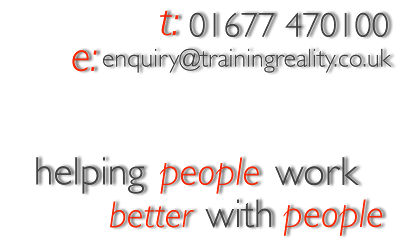Please press (at least!) one of these.
It costs you nothing, and (possibly) helps us spread the word!
Are they mountains or molehills?
Wednesday, 10 February 2010
The picture of the mole above has just brought to mind a comment made by the late John Cushnie of BBC Gardeners’ Question Time, about moles not being a problem in Northern Ireland, as they don’t have them there. That’s a slight distraction from the subject of today’s article, but another great example of how NLP anchors can work. More on that in a future article.
This article is a break in the series about being right, thinking you’re right, thinking you’re wrong, or being wrong. A couple of times over the last few days, I’ve come across examples of behaviour that, for me, falls into the category of making mountains out of molehills, and I want to explore four particular categories or types of this behaviour.
It’s a molehill to you, but a mountain to me
Different people have different things that are important to them. What is important to one person might be utterly, utterly trivial to the next. There are a potentially limitless number of reasons why this might be the case, but understanding different perspectives will start to shed light on an issue. For example:
- You might be able to fix it; I can’t
- You don’t have to suffer the consequences like I do
- You can just ignore it; I can’t
and so on. There may or may not be real validity in each of these positions, but at least understanding the true nature of the position enables us to fill in some detail in the picture and therefore gives us the option of helping the other person deal with the situation more effectively
It might be a molehill, but it’s growing
Another case might be one where the person observing the molehill is, or at least believes they are being, particularly insightful, with an eye to the future. Nipping it in the bud, stopping before it gets out of control; these are all perfectly sensible approaches some of the time.
Dealing with someone in this position also requires great understanding, and, often trickiest, the acknowledgement that they might actually be right. The one person in a team or organisation who keeps shouting about some potential catastrophe around the corner can end up being sidelined as “not a team player" or “not on-board"…but they might actually be the only ones not suffering from group think.
Relative to the flatness of the field, it’s huge!
One of the most challenging for me is when the difference in perspective on an issue can be characterised by big picture versus attention to detail approaches to understanding the world. Imagine a beautiful, flat, rolled cricket pitch, utterly flawless, apart from a single molehill in the outfield. Two possible responses to this are:
- What a beautifully rolled pitch. There is hardly a single imperfection!
- What a shame about the molehill ruining this beautifully rolled pitch!
Same situation, different mental perspectives.
Back here, there is an article specifically on different perspectives, and making them work for you rather than allowing them to cause issues. The critical part is to benefit from, not simply get annoyed by the richness that alternative approaches offer.
It’s all I can see wherever I look
The simple but powerful NLP-based exercise of “seeing" what you expect to see (more here) is an elegant demonstration of this category. Some people often, and most people sometimes, have been in a situation where the can’t see the wood for the trees - that something becomes so mentally significant that the volume or contrast on everything else is turned down, and there is only the one thing, the “molehill", that stands out.
Helping team members, colleagues, yourself or anyone else, with this situation can be tricky, and, in my experience, best handled rather gently and slowly. There will be a reason for the “loss of perspective", which could well be deeply subconscious, and a quick fix of the symptoms is likely to make things worse rather than better.
--
For management and leadership, there are some significant implications in the understanding of these categories (and others, as there is no pretence that this is an exhaustive list). Dealing with team members, people who work for you, people you work with, or even people you work for, is and can be made much easier, and more successful, if you make effort to see and understand the world through their eyes.
Please press (at least!) one of these.
It costs you nothing, and (possibly) helps us spread the word!



